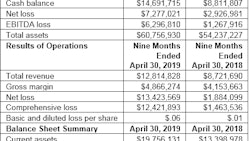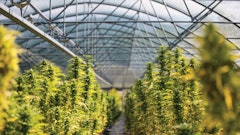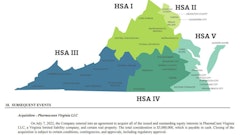WAKEFIELD, Mass., Dec. 20, 2019 /PRNewswire/ -- PRESS RELEASE -- Curaleaf Holdings, Inc., a vertically integrated cannabis operator in the United States, has announced that the company has received commitments from a syndicate of lenders for a US$275 million Senior Secured Term Loan Facility bearing interest at a rate of 13.0% per annum, payable quarterly in arrears, with a maturity 48 months from closing.
Curaleaf has received commitments for the facility from existing lenders as well as other United States based institutional investors. This transaction constitutes a broadly syndicated institutional deal led by sophisticated and long-term investors that have confidence in the cannabis industry and the Curaleaf team in particular. The proceeds will be used to refinance existing debt, satisfy transaction fees and expenses from previously announced acquisitions, fund capital expenditures and for general corporate purposes. The sole placement agent for the facility is Seaport Global Securities LLC.
"This transaction is a historic milestone for Curaleaf. Our track record of continuously improving results has attracted a strong group of institutional investors who share our belief that we have established a leading credit profile in the cannabis industry," said Joseph Lusardi, Chief Executive Officer of Curaleaf. "Importantly, we have raised debt capital at attractive terms without the need to dilute our shareholders. We believe this additional capital fortifies Curaleaf's balance sheet to take advantage of the significant market opportunities that exist in this space."
Neil Davidson, Chief Financial Officer of Curaleaf, continued, "As our business continues to scale and generate positive free cash flow, this additional capital puts us in a position of strength and provides us with ample liquidity to execute on our strategy. Further, we believe our pending acquisitions, most notably Select and Grassroots will benefit from our expanded balance sheet, both of which are expected to close early next year."
The facility is subject to completion of customary closing conditions, with expected completion of conditions precedent and drawdown on or about Jan. 10, 2020.
























